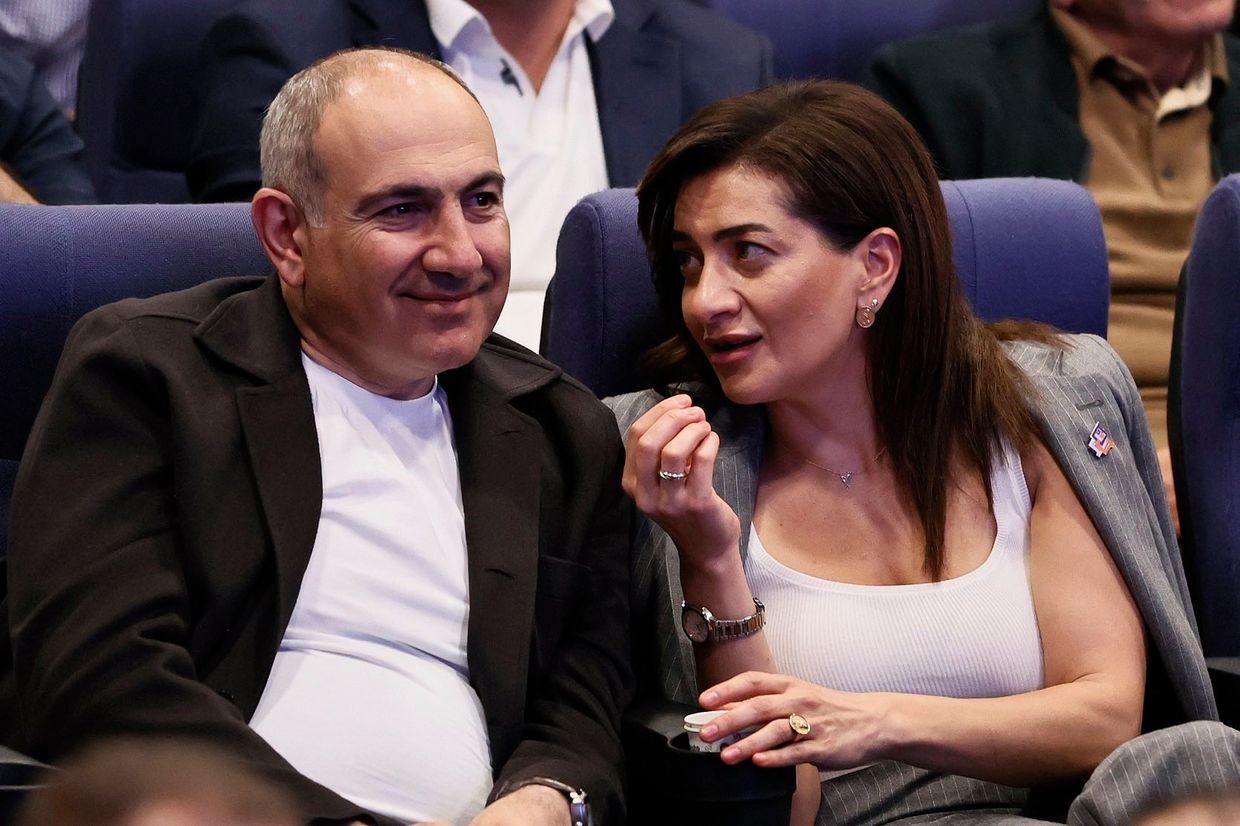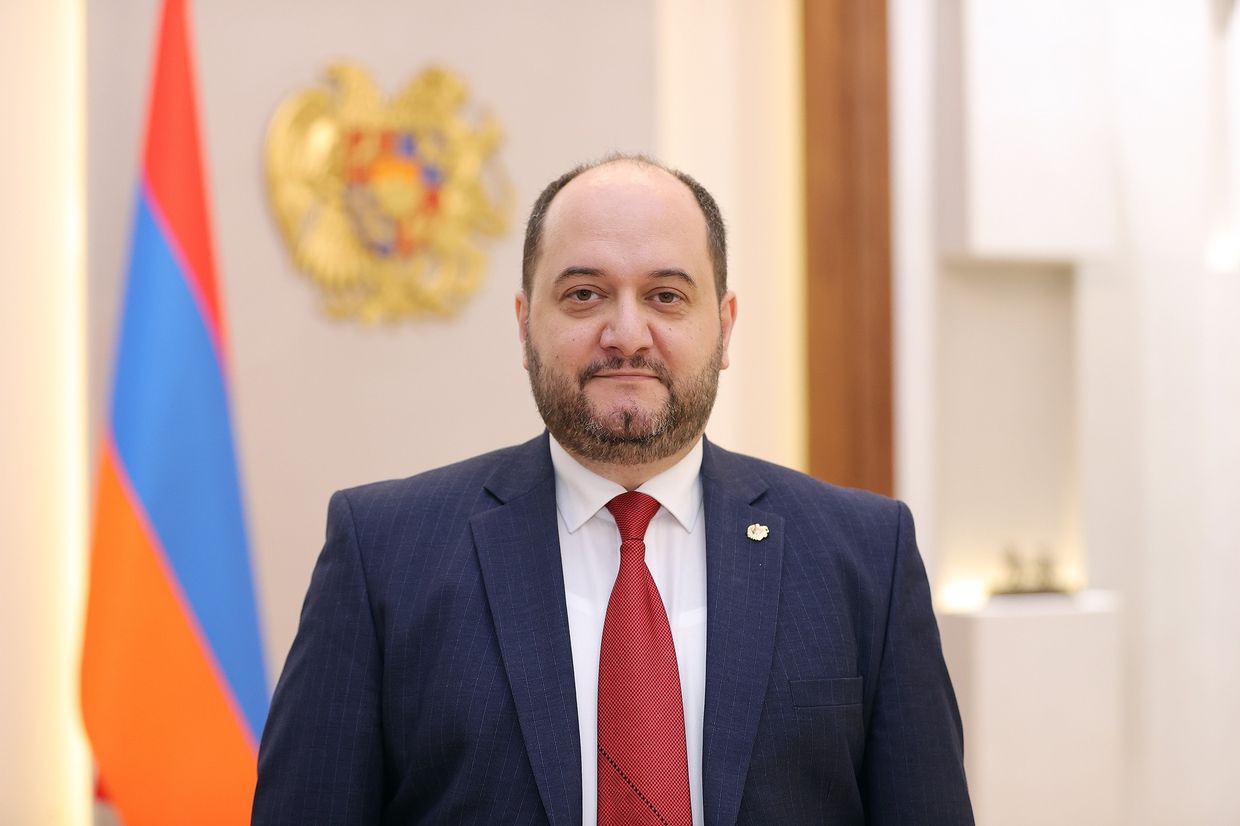
Since 16 May, Anna Hakobyan, the wife of Armenian Prime Minister Nikol Pashinyan, has been posting daily on social media, counter-attacking her critics using the same type of rhetoric. Her posts began as the Armenian government warned against initiating moves which could be seen as threatening media freedom.
Hakobyan remains an active public figure not only through her social media presence, but also through her role as the executive director of the My Step Foundation initiative, which she founded shortly after Pashinyan came to power.
She recently launched an education campaign and continues to maintain a public profile, including a local talk series called Learning is Trendy, reportedly inspired by TED Talks, that includes Pashinyan as a speaker.

Hakobyan has faced criticism for her fashion choices, which some say do not align with official dress codes, as well as for her political comments. For years, she has also been the target of verbal insults and disinformation.
Despite the availability of legal tools to address insults, defamation, and disinformation, Hakobyan has chosen a different approach — responding to her critics online using verbal insults of her own.
The recent online sparring began with a lengthy post on 16 May, in which Hakobyan addressed several accusations of her alleged corruption and ownership of property in and out of Armenia. Among the arguments her critics cited was the claim that her My Step Foundation had declared $4 million in assets in the US.
Noting that the list was long, Hakobyan claimed that it was ‘living proof of the supremacy of freedom of speech’ in Armenia, as well as ‘evidence of the boundless stupidity of some people’.
In another post the following day, Hakobyan dismissed claims made in the tabloid Hraparak and announced her decision to exercise her ‘inalienable right’ of freedom of speech and expression.
Since then, she has been making multiple posts daily, either sharing articles or commentary about herself, in turn, using insulting language, such as calling tabloid media publications or their authors illiterate or ‘ignorant and uncouth’, as well as labelling them a ‘louse’ or ‘donkey’.
In response to a column published by Oragir News following Hakobyan’s criticism of its headline, author Tatul Mkrtchyan wrote that if the goal was to address the criticism, ‘then it was necessary to refute it with solid facts’, instead of using ‘a word that is completely inappropriate’.
‘Such behaviour is unbecoming of the wife of someone holding the highest office, from whom many take example’, Mkrtchyan wrote.
Sharing the piece, Hakobyan said that she continued ‘to offer and hope that the quality of our public discourse will change and the level will rise above the bottom’.
‘As long as this suggestion is met with ridicule and insults, the response will be equivalent’, Hakobyan concluded.
Asked about Hakobyan’s posts during Monday’s press briefing, Parliamentary Speaker Alen Simonyan said that he was not sure if Hakobyan had filed any lawsuits in addition to her posts.
‘In today’s unregulated state of media landscape and social networks, I consider that every person, including [a public] figure, is free to respond in whatever manner they choose’, Simonyan said.
He also claimed that in the past, it was impossible to use such language, especially when it came to the wife of the country’s leader, due to the risk of inciting violence.
In turn, opposition MP Christine Vardanyan shared screenshots of Hakobyan’s posts, saying that if an opposition figure made similar posts with such language, the person would face ‘criminal cases, persistent attacks, [or be] politically discredited’.
Hakobyan’s comments came shortly after Pashinyan’s Chief of Staff Arayik Harutyunyan underscored the need for urgent self-regulation by journalists and media outlets, warning that in case there was a failure to do so, ‘the public will force the authorities to use serious regulatory tools, which you will qualify as a restriction on freedom of speech’.
The statement was widely criticised and deemed by some as an implicit threat to journalists in the country. Many highlighted how the sentiment contradicted Armenia’s progress in the Reporters Without Borders 2025 World Press Freedom Index, in which it placed 34th, far ahead of its neighbours.











